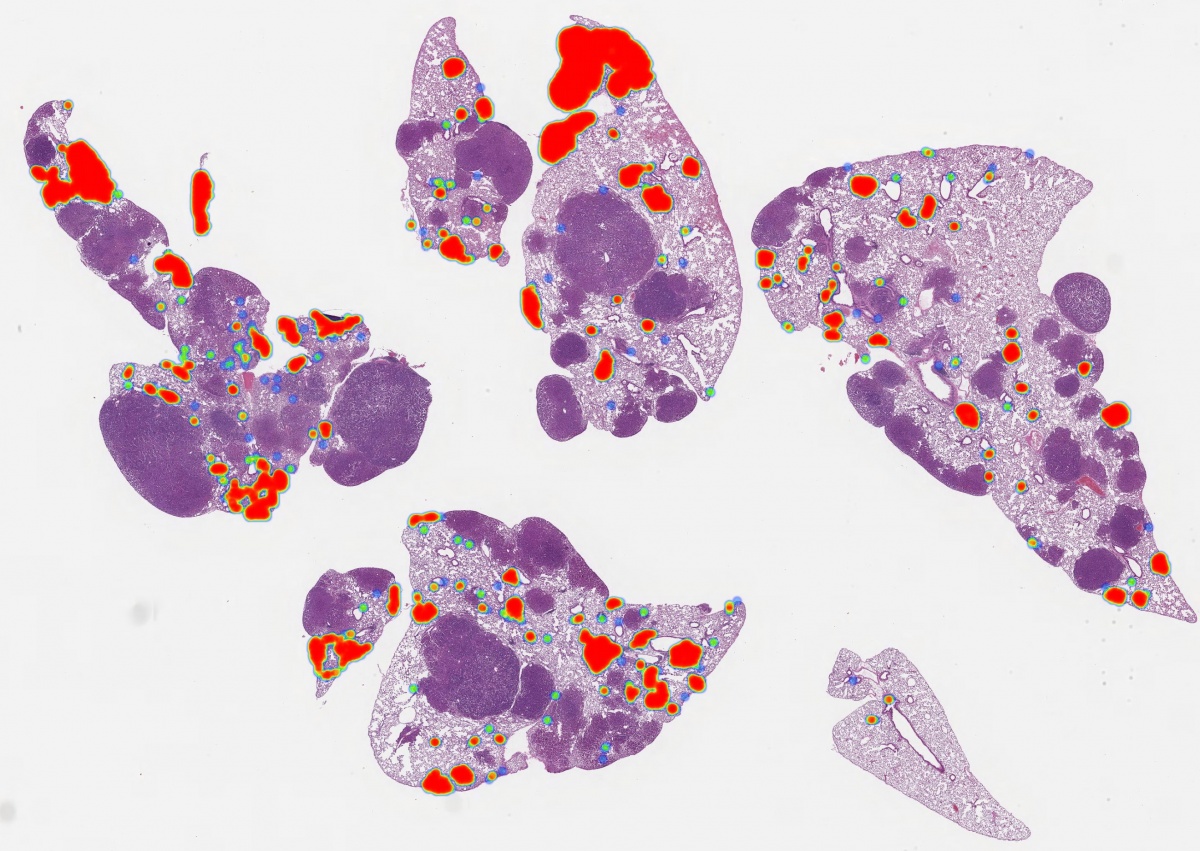The VinUni-Illinois Smart Health Center (VISHC) is honored to welcome Dr. Tan H. Nguyen – a Staff Imaging Scientist/ML engineer from PathAI to deliver a distinguished talk on the generalization of machine models developed for digital pathology. This seminar is open to all VinUni students, faculty, staff, and partners. We are looking forward to your attendance!
Topic: “Contrimix: A novel & scalable method to improve the generalization of machine models developed for digital pathology”.
Time: 10:00 to 11:30 AM Tuesday, August 01, 2023
Location: C202

ABOUT THE TOPIC
Generalization is a challenging problem in digital pathology due to multiple sources of noise in pathology slides (staining, imaging instruments, lab settings etc). Hence, machine learning models developed using one dataset may not work well on others. In this talk, I will present a recent work developed by PathAI named Contrimix to address this problem. Contrimix is an unsupervised method that learns to decouple the noises from biologically relevant signals in each slide and generate synthetic images to improve model performance. The technique has achieved state-of-the-art performance on WILDS Camelyon 17, RxRx1 dataset, and internal PathAI benchmarks. I will also show some examples of combining novel imaging modalities and machine learning to extract deep insights from digital pathology slides to improve patient outcomes.
ABOUT THE SPEAKERS
Tan H. Nguyen is currently a Staff Imaging Scientist/ML engineer at PathAI, a leading company that develops AI-powered solutions for digital pathology in Boston, Massachusetts, USA. He develops new ML methods and novel imaging modalities to extract additional information that is not yet available from commercial scanners. Before joining PathAI, he spent 2.5 years at MIT to lead the endoscopic optical coherence tomography (OCT) team to develop ultra-high-speed tethered devices for the surveillance of dysplasia in Barrett’s esophagus (working with Dr. James G. Fujimoto), and 2 years at Butterfly Network Inc, a startup in portable ultrasound imaging to develop frequency range migration algorithm for 3D reconstruction. He received his PhD from UIUC under the supervision of Prof. Minh Do and Prof. Gabriel Popescu for the development of computational methods for Quantitative Phase Imaging. In his free time, he enjoys running or doing hands-on experiments with his 6 y/o son.
ABOUT PathAI
PathAI, located in Boston, Massachusetts, is a medical technology company that runs a technical pathology program that can provide an efficient and more accurate diagnosis for patients and providers. Additionally, the software is currently working to further assist in research, drug development, global health solutions, and treatments. PathAI has two primary missions for its AI product: to help pathologists make more accurate diagnoses and better predict how patients will respond to a pathologist’s recommended therapy based on the characteristics of patient tissue. PathAI was founded by co-founders Andrew H. Beck and Aditya Khosla with the goal of reducing “error rates, increasing accuracy and reproducibility” in pathology. In 2017, the company began partnering with pharmaceutical companies to work on drug development. In 2021, with $165M raised in Series C funding (co-led by D1 Capital Partners and Kaiser Permanente), the company began clinical diagnostics with the acquisition of Poplar, a lab service provider for Poplar Healthcare PLLC. Since then, several industry collaborations have been established with companies such as Roche, LabCorp, and Cleveland Clinic.
Resultantly, the company’s clinical research may reach conflicts of interest being a for-profit company including sponsors seeking research and development as noted in the company’s publications. PathAI initially focused on applications in drug development but expanded to the clinical setting in 2021. Their main focuses are translational research is the conventional method of research in which pathologists and data scientists apply existing and new models to process samples. Samples may be interpreted from off-site labs or analyzed on-site. This method of research focuses on “identifying new insights on pharmacodynamics, mechanism of action, and patient stratification”. Clinical trial services is a method of analysis used to help identify biomarkers for “patient enrollment, endpoint analysis, and correlative studies in prospective clinical trials”. Research organizations access the company’s algorithms for slide viewing, reports on interpretable features such as diagnoses or biomarker scores, and other services such as sample processing, staining, scanning, and digitization. Diagnostic development and deployment is a method of research used to “develop and commercialize AI-powered diagnostics globally and at scale”. This includes adding AI models for complementary diagnosis, engaging with sponsors and health authorities, and launching new diagnostics through company labs (and partner labs). For more: https://www.pathai.com/about-us/